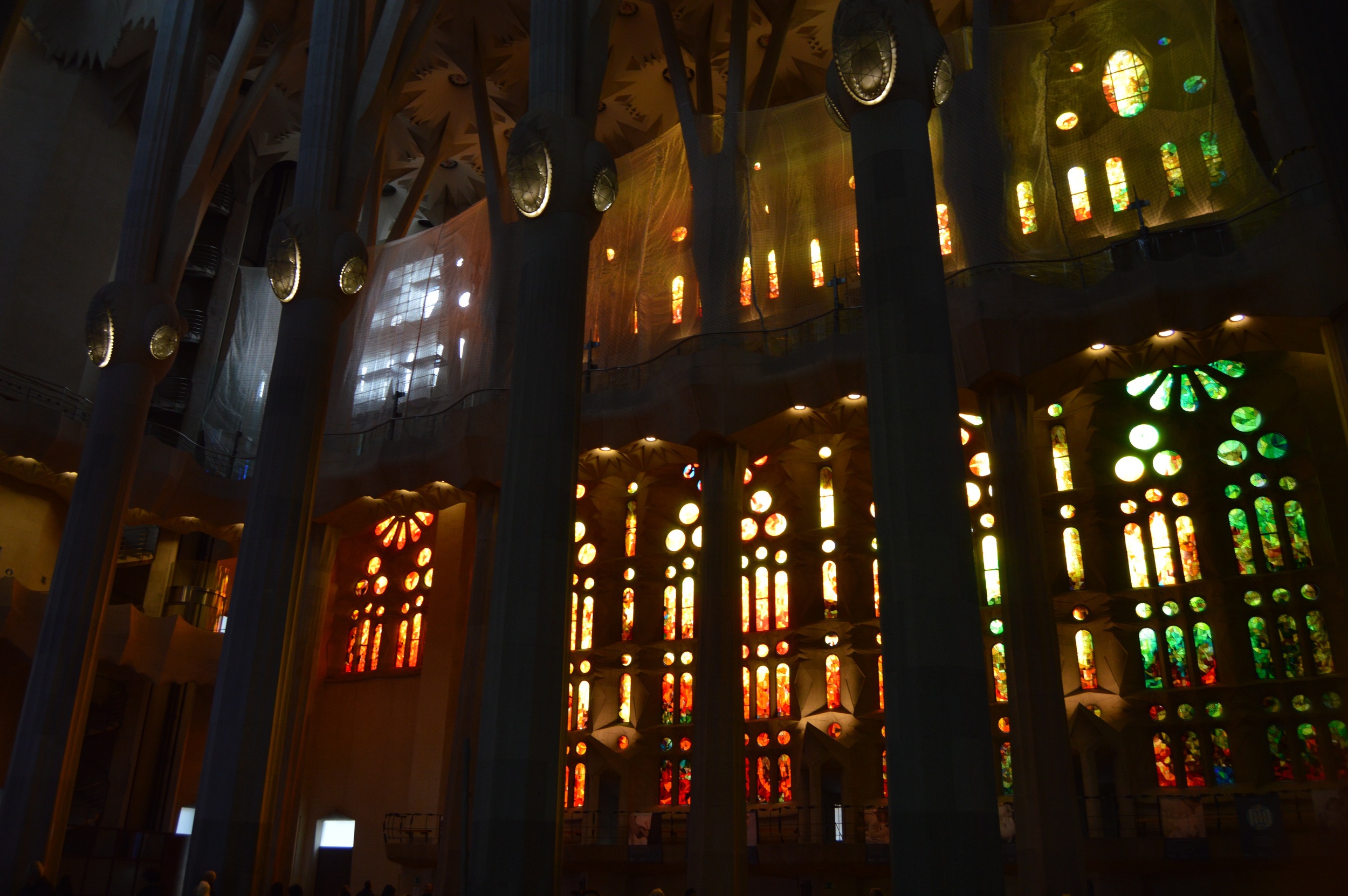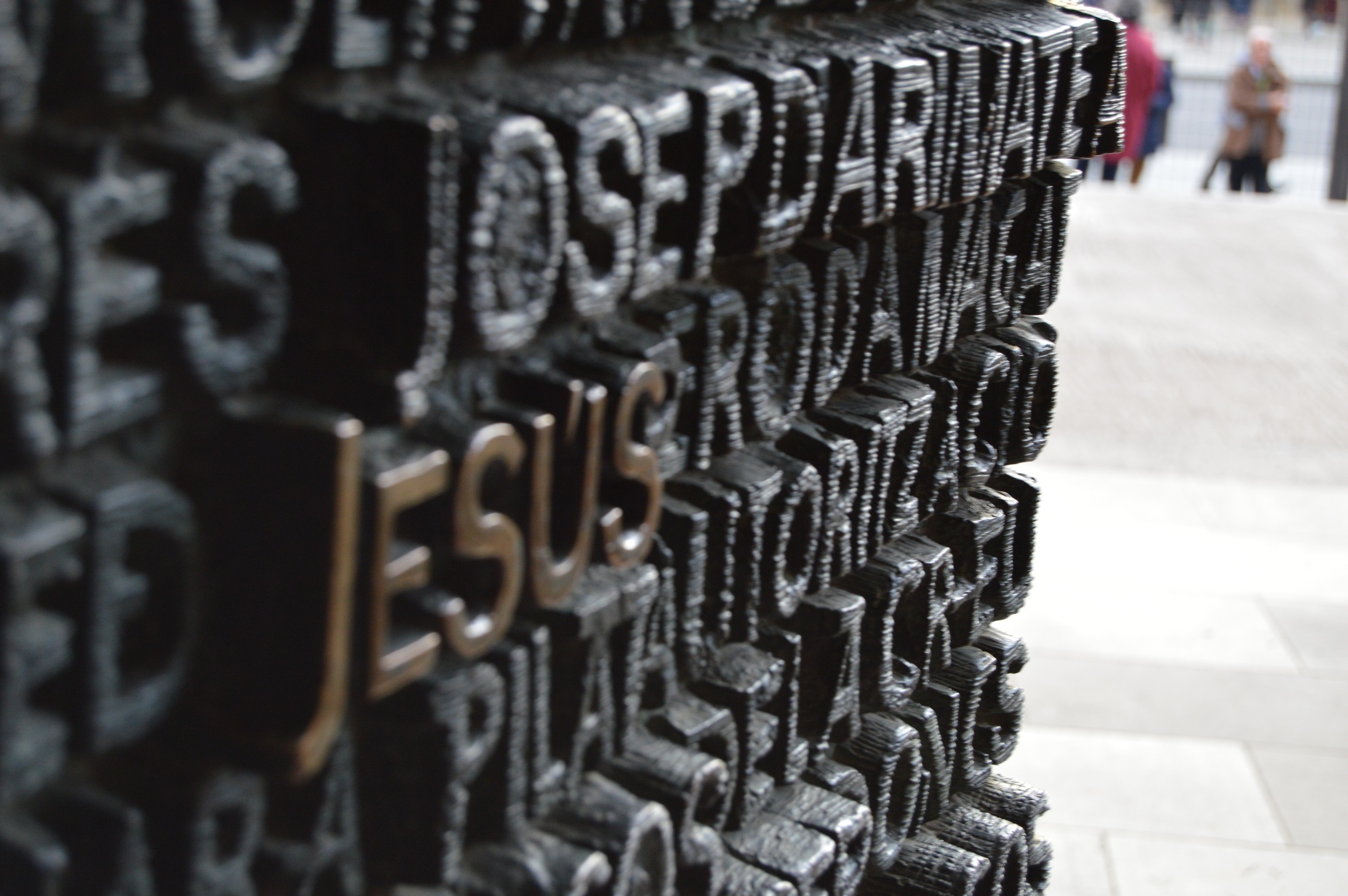In honor of just finishing up finals here in Barcelona (yes I know I'm leaving in a week, no you shouldn't bring it up), I wanted to do a little bit of a reflection post about why actually studying and learning while you're abroad are so important.
The thing to understand if you decide to come abroad is to not expect to just be partying and living it up the entire time. Sure, it might be "the best semester of your life," but partying and going to the club every night are not the reason why.
The other thing to understand is that when I say "studying" and "learning," when you're abroad this doesn't just take place in the traditional classroom setting. Some of it does, but most of it actually happens on your own.
You control how much you learn and experience the world around you, which is something I want to convey in this post. So, without further ado, here's ten reasons why you should actually "study" when you study abroad.
1. You might actually learn a new language
If Ben Stiller can do it, so can you!
Nothing can quite compare to studying a foreign language in a foreign country that actually speaks that language. You can take as many Spanish classes in college as you want, but unless you go out and actually practice the language every day, you'll never fully understand it or be fluent in it.
When you study abroad (in a foreign language-speaking country), you have the opportunity to go out and practice a new language every day for a semester or longer. You also have the opportunity to take classes in that language. Even if you're in the lowest level speaking course, chances are that most of the class will be taught in that language. You can't get that kind of immersion anywhere else, so take advantage of it.
2. You'll learn about the country you're staying in
Photo courtesy of viajerosmadeinspain.com.
News flash, you're living in a foreign country for at least a few months. That country is different from your home country in about a trillion ways. A lot of the classes offered on study abroad programs are art, history, architecture or other subjects relating to that country.
Why wouldn't you want to take advantage of learning about the country you're living in? Seems like a no brainer to me. Even if you don't like some of those subjects traditionally, give them a shot. You might find that you actually like them because of the way the class is taught (which is often the case in foreign countries) or because you get to see the subject up close every day when you walk around your city and can see what you're learning all around you.
Making those connections from what you learn in the classroom to the world around you is the best way to take more than a new drinking game away from your study abroad experience.
3. YOUR GRADES MIGHT ACTUALLY COUNT
Gif courtesy of giphy.com.
Might be a wake-up call to some people, but depending on the program you're on while you're abroad, those classes that you didn't ever go to might actually count toward your GPA back home. Pretty simple if you ask me.
If you don't go to class, don't do any of your work and generally have an attitude of "I don't care, f– it," you might find that your GPA has taken a major hit when you get back. The bigger problem with that is that there's no one else you can blame beside yourself. So, suck it up, go to class regularly and you'll do just fine.
4. You'll meet new people
Yeah, two Will Ferrell gifs back to back. So what? He's a funny dude. Gif courtesy of edgaralanfrog.tumblr.com.
One of the best parts about going abroad is that you're constantly meeting new people, almost every single day. They could be other people on your program, from your own school or different people from all over the world and that's pretty cool. You aren't going to meet all of those new people if you're holed in your apartment all day or hanging out/going out with the same people all the time.
In actuality, a great place to meet a bunch of new people is in your classes. Hard to believe, I know, but if you go to class and make an effort to talk to different people each time, you'll end up making a bunch of new friends.
5. traveling is learning, too
Photo courtesy of uproxx.com
It might not be the most traditional way to learn, but trust me that when you're taking one of your weekend trips somewhere, you're immersing yourself into a whole other culture. Even if you don't experience every museum or cultural activity a city or country has to offer, you still pick up on cultural cues and differences without even realizing it.
Then, your brain does this amazing thing where it actually compares and contrasts those cultural differences and cues with other ones you've experienced in your travels and with the ones from your home country. So, even if you decide to blow off a class to catch a flight you booked (sometimes while sitting in that same class), you're actually still studying another culture and constantly learning.
6. EMPLOYERS LIKE IT
Gif courtesy of pinterest.com.
Believe it or not, a ton of employers place great value on potential employees who have studied abroad and actually have something to show for it. It's one thing to put on your resume that you studied abroad in Spain for four months, but it's another thing entirely to be able to articulate and explain your experience.
It gives you more anecdotes for interviews. You can explain how living in a foreign country actually helped you learn independence, how to overcome various obstacles, how to break out of your shell and how all the things you learned make you the best candidate for the job.
If you can relate your experiences abroad to prospective employers in an effective way, they'll think really highly of you and your application.
7. you'll be more organized
Ok, maybe not. Gif courtesy of Reddit.
Even if you think classes aren't as difficult when you're studying abroad*, you're actually juggling a bunch of different things at once. You have to go to class and make sure you keep up with your work, but you also want to hang out with friends, explore your host city and country and travel as much as you can. It's a demanding schedule that really requires you to budget your time effectively.
Also, all that traveling helps you to figure out important life skills along the way such as how to actually pack for a weekend away without your mom's help and how to budget your time when you're taking a trip somewhere and want to see all the sights but only have a certain amount of time.
Again, not learning that occurs in the classroom, but still important.
*Important side note: This is absolutely not the case. If you're studying abroad just to take easy classes, you're going to find yourself out of luck. Just like any other school, there are some classes that are easier than others, but there are still plenty of challenging classes that you might find yourself in.
8. you'll understand the value of time
No time for BS here. Gif courtesy of giphy.com.
Going along with the organization and time management I just talked about (see number five right above if you already forgot), studying abroad helps you make the most of the time you have. A lot of classes abroad have hours that you may not be used to. For example, I had classes twice a week at the ungodly hour of 9am. I also had a four-hour Spanish class twice a week.
These might not be things that you're used to at your home college or university, but they do exist abroad. But, you learn to live with them. You actually might come to find that you like getting your day started earlier because it helps you be more productive the rest of the day. Or you might learn not to drink as much the night before you have a four-hour Spanish class. Things I couldn't seem to get a hang of, but you might!
As I touched on in the organization point also, you'll learn how to plan trips. So, you've only got 72 hours in Rome? No problem. Besides reading my weekend guide to Rome, you'll learn to plan the trip hour-by-hour just so you can see everything. That's an important skill to have that you can only learn if you travel a lot when you go abroad.
9. you'll understand the value of a dollar, euro or whatever
Gif courtesy of inc42.com.
One thing that becomes extremely apparent very early when you're studying abroad is that you're spending a butt-ton of money. If you haven't learned to budget your money in college, you sure as hell better learn when you study abroad.
Studying abroad also gives you familiarity with the values of other currencies and their relations to each other. You'll find yourself looking at exchange rates and analyzing economies more than you usually do just because you want to know the best time to go to the ATM so that you have enough money to eat, travel, shop, buy alcohol and go out at night.
Of course it helps when your parents are helping to finance your study abroad experience, but you should still work out a system with them, beginning before you go. You should talk about and agree on a weekly/monthly budget and you should do your best to stick to that budget. If you do, minus a splurge here and there, you'll be fine.
Again though, this is an experience that occurs outside of the classroom and often without you even realizing it's happening. However, it ends up being another extremely important life skill that you can learn really easily by studying abroad and paying attention.
And, most importantly...
10. you'll learn about yourself
And he's 3/3 on the Will Ferrell gifs. Nailed it. Gif courtesy of confessions-of-a-barbie.tumblr.com. (Also, no, I did not actually visit that tumblr page.)
That's right, time to get #deep. When you study abroad, you're placing yourself into a situation that you've most likely never found yourself in before. You're living in a foreign country, you might not know anyone, there could be a language barrier and there will be a bunch of problems and obstacles along the way that you never thought you would have to face.
It forces you to do a lot of growing up and finding yourself in a very short period of time. By the end though, you'll emerge a completely different person than when you started. Not in a bad way, you're just more mature because you've faced all of these new challenges. Sure, they might have seemed scary or daunting at the time, but now little things like doing your own laundry don't even phase you.
I guarantee you will end up meeting some incredible people along the way and some of those people are right by your side, experiencing all these new things with you. That means you'll almost never have to face things alone.
You'll look back on your study abroad experience as some of the best times of your life, and that's because you took the time to study, learn and to get to know yourself and the amazing world in which we get to live each and every day.



























